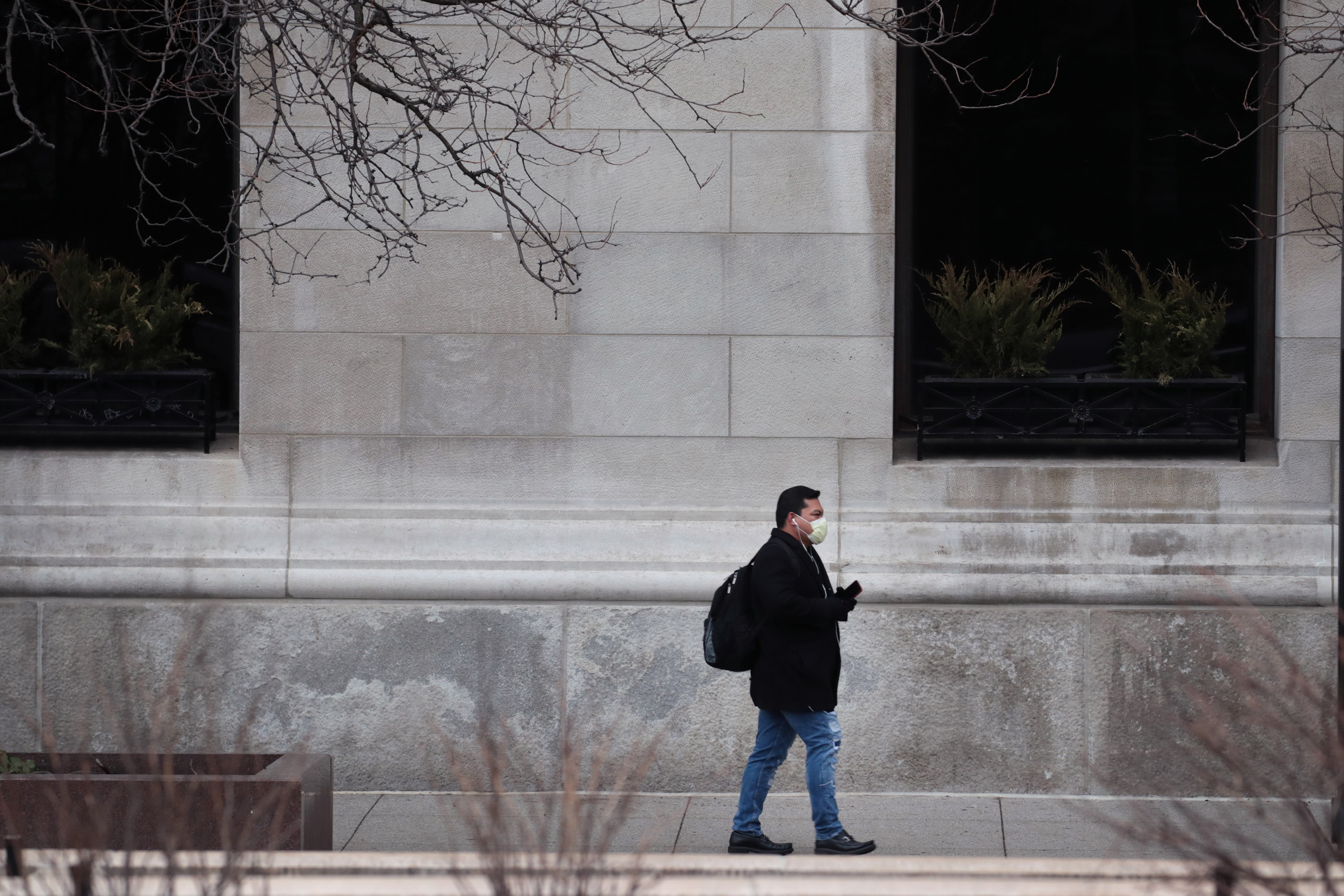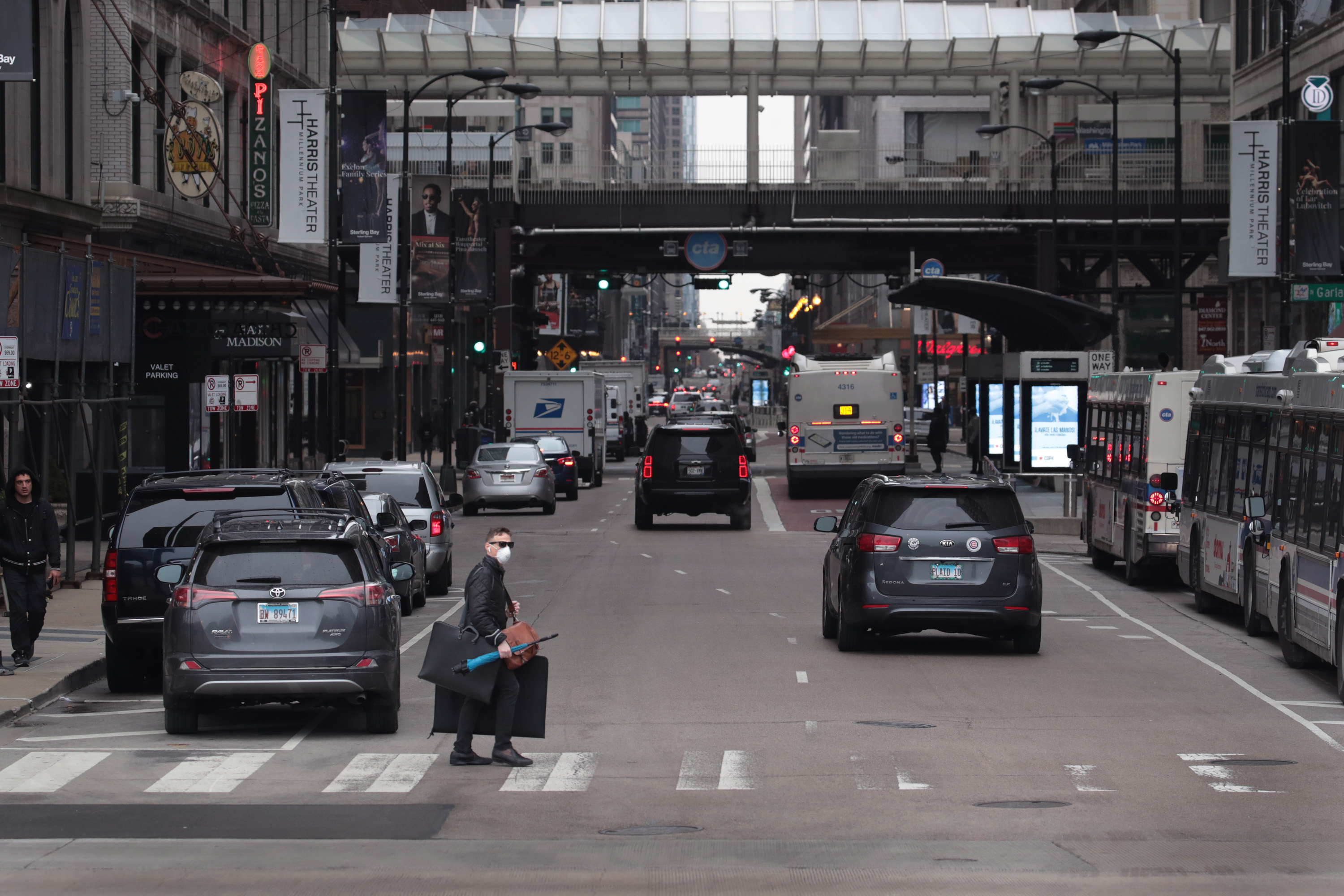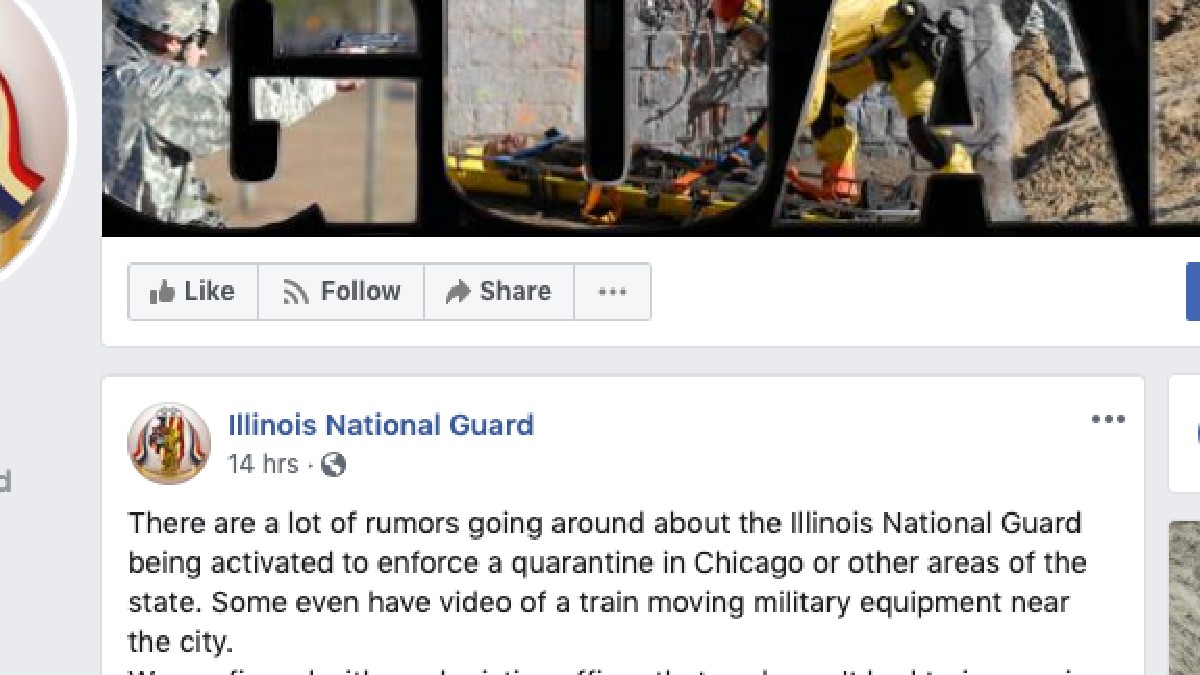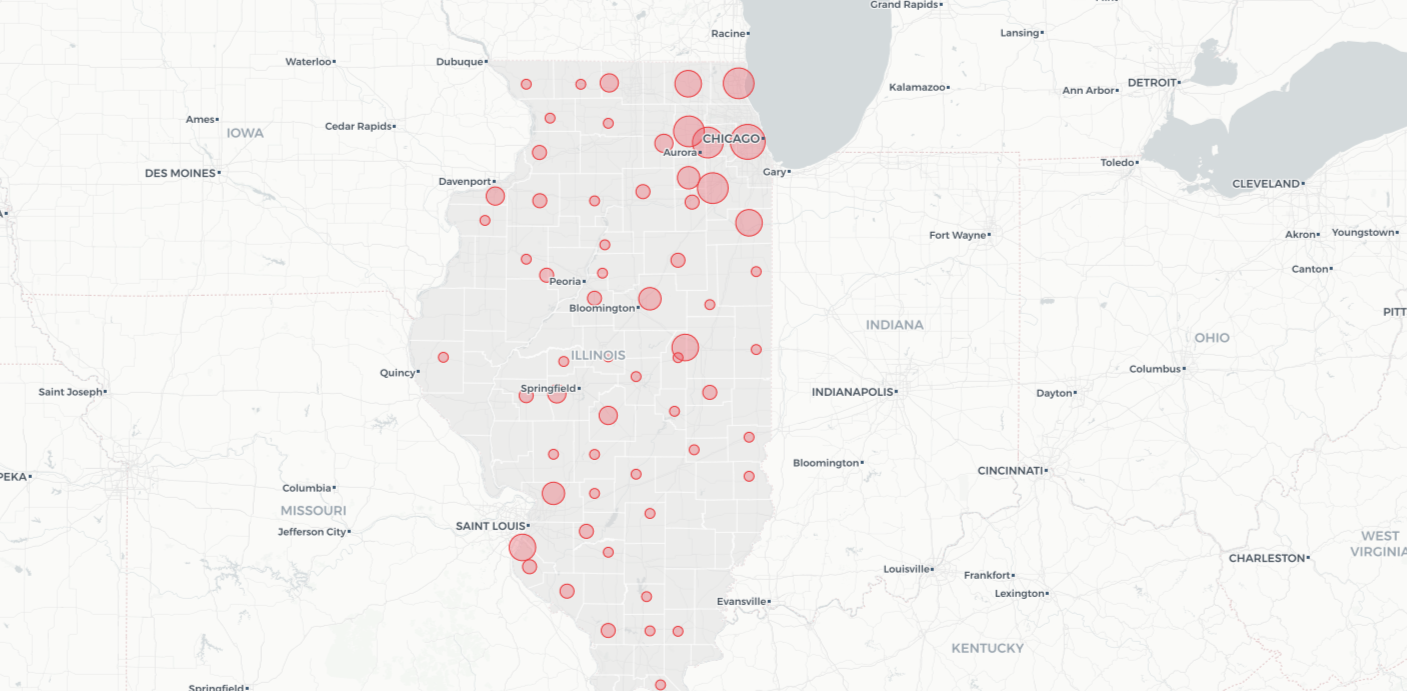Illinois Gov. J.B. Pritzker announced a statewide stay-at-home order aimed at stopping the spread of coronavirus Friday, but what does that mean for you?
The order is expected to begin at 5 p.m. Saturday and continue through April 7.
Essentially, the order closes "non-essential" businesses that may still be open. It will determine what is deemed a "necessary industry" - such as government, supply chain, media and others- and what is not.
Here are reasons you can leave your home:
- For health and safety: seeking emergency services, obtaining medical supplies or medication or visiting a health care professional
- For necessary supplies and services: obtaining groceries and food, household consumer products, supplies they need to work from home, and products necessary to maintain the safety, sanitation and essential operation of residences
- For outdoor activity: walking, hiking, running or biking – including going to public parks and open outdoor recreation areas, except for playgrounds
- For certain types of work: Providing essential products and services at Essential Businesses or Operations or otherwise carrying out activities specifically permitted in the order, including Minimum Basic Operations
- To take care of others: Caring for or transporting a family member, friend or pet in another household
After issuing an order for Illinois residents to stay home amid the coronavirus pandemic, Gov. J.B. Pritzker answered questions about how the order could be enforced.
You can also leave if you work an "essential job." That includes:
- Healthcare and Public Health Operations: Working at or obtaining services from hospitals; clinics; dental offices; pharmacies; public health entities; healthcare manufacturers and suppliers; blood banks; medical cannabis facilities; reproductive health care providers; eye care centers; home healthcare services providers; mental health and substance use providers; ancillary healthcare services — including veterinary care and excluding fitness and exercise gyms, spas, salons, barber shops, tattoo parlors, and similar facilities
- Human Services Operations: any provider funded by DHS, DCFS or Medicaid; long-term care facilities; home-based and residential settings for adults, seniors, children, and/or people with disabilities or mental illness; transitional facilities; field offices for food, cash assistance, medical coverage, child care, vocational services or rehabilitation services; developmental centers; adoption agencies; businesses that provide food, shelter, and social services and other necessities of life for needy individuals — excluding day care centers, day care homes, group day care homes and day care centers licensed as specified in Section 12(s) of the order
- Essential Infrastructure: Working in food production, distribution and sale; construction; building management and maintenance; airport operations; operation and maintenance of utilities, including water, sewer, and gas; electrical; distribution centers; oil and biofuel refining; roads, highways, railroads, and public transportation; ports; cybersecurity operations; flood control; solid waste and recycling collection and removal; and internet, video, and telecommunications systems
- Stores that sell groceries and medicine
- Food, beverage and cannabis production and agriculture
- Organizations that provide charitable and social services
- Media
- Gas stations and businesses needed for transportation
- Financial institutions
- Hardware and supply stores
- Critical trades, includingplumbers, electricians, exterminators, cleaning and janitorial staff for commercial and governmental properties, security staff, operating engineers, HVAC, painting, moving and relocation services, and other service providers that maintain the safety, sanitation and essential operation of residences, Essential Activities, and Essential Businesses and Operations
- Mail, post, shipping, logistics, delivery and pick-up services
- Educational institutions, for purposes of facilitating distance learning, performing critical research, or performing essential functions
- Laundry services
- Restaurants for consumption off-premises
- Supplies to work from home
- Supplies for Essential Businesses and Operations
- Transportation, for purposes of Essential Travel
- Home-based care and services
- Residential facilities and shelters
- Professional services
- Day care centers for employees exempted by this Executive Order
- Manufacture, distribution, and supply chain for critical products and industries
- Critical labor union functions
- Hotels and motels, to the extent used for lodging and delivery or carry-out food services
- Funeral services
For travel, only "essential travel" will be permitted and must be done using "social distancing requirements." That includes:
- Performing Essential Activities, Essential Governmental Functions, Essential Businesses and Operations or Minimum Basic Operations
- Caring for elderly, minors, dependents, persons with disabilities or other vulnerable persons
- Receiving materials for distance learning, for receiving meals, and any other related services from an educational institution
- Returning to a place of residence from outside the jurisdiction
- Following the direction of law enforcement or court order, including to transport children pursuant to a custody agreement
- Returning to a place of residence outside the State for non-residents
For more information on the order, click here.





